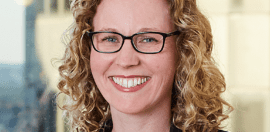Pivoting on a pinhead and keeping calm under pressure: NFP leaders share how they responded to COVID-19

22 October 2020 at 7:30 am
Ahead of the upcoming Not-for-Profit Governance Forum on 13 November, Governance Institute hears from Movember and Brotherhood of St Laurence about how the sector has adapted, and finessed its governance, during the COVID-19 pandemic.
Amid the disorder of 2020, a certain level of calmness was evident in the not-for-profit (NFP) sector, an area well-versed with crisis.
“I think there was a certain calmness for NFPs amongst the early mayhem that may be different to the response in the for-profit sector,” Brotherhood of St Laurence general counsel and company secretary Bernadette Doyle said.
“Leaders in the NFP sector are used to working with people impacted by a crisis and our people are resilient. Many have worked in conflict zones, or with people in Australia who come from highly volatile situations.”
Just as the NFP sector has always been distinct from its commercial counterparts in areas such as mission, ownership and profit reinvestment, NFP organisations have experienced differences in managing the disruption of the COVID-19 pandemic.
How have they adapted to these disruptions? What are the key strategic and operational issues that NFPs have faced and how are these being overcome? Will the sector be transformed by the changes brought by the pandemic response?
These questions and more will be examined at the upcoming Not-for-Profit Governance Forum on 13 November. This Victorian event will be run virtually, enabling access to attendees from any location.
Speakers include Doyle and Movember’s global director of mental health and suicide prevention, Brendan Maher, who will present the opening session, “Pivot on a pinhead: How organisations had to adapt”.
Ahead of their presentations, Doyle and Maher spoke to Governance Institute about how their organisations have adjusted service and program delivery for their clients and communities, and finessed their governance and management practices, to meet the challenges of the COVID-19 pandemic response.
Q. Do you think the approach of NFPs to the COVID-19 response has been different from that of a for-profit organisation?
Doyle: “In the NFP sector, we have to be adaptable. We’re used to responding to a crisis whether it be bushfires or a pandemic or supporting people in volatile situations – the nature of the work is unpredictable and things happen outside of our control. It translates into calmness in responsiveness, resilience and the ability to pivot really quickly. We know that rules can change very quickly and can have a significant impact on people. In the NFP space that’s part and parcel of the work and that’s a real differentiator that allows us to remain calm in a crisis.”
Maher: “The experience [during COVID-19] has really given us a real appreciation of the strength of being mission-led, of our purpose. The program of work and what we’ve got in front of us, in terms of what we’re wanting to deliver and want to do, it’s ambitious and it needs to be. We’ve got a really unique opportunity to listen to community needs and mobilise our resources to continue to find interventions that are promising, that demonstrate impact, and get behind those in a big way.”
Q. How have the programs and services you provide changed?
Doyle: “I think the biggest change has been the move to the virtual space and that has really moved NFPs ahead decades – which otherwise may have been a little less open to new ways of working. BSL has a school, and like all schools in Melbourne, we had to move to online learning. Also demand changed from the traditional to a blended delivery of services, including offering virtual spaces to meet. Our in-home care services took 48 hours to pivot to a blended delivery model. To do this we had to ask the frontline team what needs to happen to continue to provide care for our clients. They came up with the solution and this ensured continuity of services and care for our clients.”
Maher: “For the mental health and suicide prevention stream, the COVID-19 situation meant that we accelerated the delivery of two of our digital mental health tools, Movember Conversations… and Family Man. To achieve this, the organisation had to dissolve silos between our three cause areas [mental health and suicide prevention, testicular cancer, prostate cancer]. For example, IT design teams with people like developers and user experience designers who were focused on cancer work, refocused on our mental health work because we deemed the two tools as being the most valuable ways to respond to community needs during COVID.”
Q. How did the impact of COVID-19 alter your organisation from a governance perspective?
Doyle: “We established a crisis management team to lead our organisation’s response to the crisis across our broad range of services including NDIS, aged care, schools, community programs and retail. The executive director provides regular updates to the board in between board meetings – keeping communication open. Initially I think that the board was operating in the monitoring and supervising role which is what was required, particularly initially where we had a number of shorter extraordinary board meetings to deal with the early days of COVID-19. Our board committees are also working very closely with management. Now that we have moved on from the early days of the crisis, I feel that the board has shifted its focus to strategy and this is particularly important for our organisation to be able to adapt and pivot to the crisis.”
Maher: “In order for us to meet the demand of fast-tracking our digital mental health support tools, a smaller group of the executive leadership team was established – essentially a governance committee – which was able to make quick decisions on areas like financial inputs. Where normally we would go through a number of different processes, this group allowed us to keep accelerating the delivery of the digital tools at the highest velocity we could, to ensure we got it into the hands of the community as soon as practical. It also ensured we were engaging the right level or subject matter expertise, and that nothing was being short-circuited that could compromise safety or product credibility.”
Q. What observations have you made about the mental health and wellbeing of your teams during COVID-19, and how are you supporting them?
Doyle: “Our leadership understands our people’s wellbeing through our organisation-wide Pulse Wellbeing Survey and through tracking the use of our employee assistance program. Our in-house Chaplains also provide support through the Conversation Hour and spiritual leadership so all of our people can stay connected to what inspires them and equips them to stay on track with our mission. They also do fun things like blessing the pets. We know that our people have enjoyed the increased flexibility working from home has provided but the barrier between work/home life is now dissolving. It’s more of a work/life blend. We are now incorporating mindfulness and social time into work schedules such as Wellbeing Wednesdays and we are encouraging staff to have less virtual meetings, make time to think and take leave to foster wellbeing. We have implemented meeting free days to make time for people to think and do. We want communication to include care – it can’t just be all about work.”
Maher: “We’ve taken wellbeing really, really seriously, along with the targeting of our support. We did a wellbeing survey across our organisation to understand what was keeping people awake at night, how people are managing work-life balance, and out of that we were able to draw some key insights around the kind of information and tools and training that would benefit the team. I’ve seen our leaders walking their talk with self-care in this respect as well. That hits a mark with people and helps the team, and those that might be having difficulty to understand they’re not alone.”
Bernadette Doyle and Brendan Maher will speak at Governance Institute of Australia’s virtual Not-for-Profit Governance Forum in Victoria on 13 November.
Formalise your learning with a NFP certificate discount
To support Australia’s NFP professionals, Governance Institute of Australia has launched a special NFP quick-start online certificate that you can complete safely online at your convenience.
We have an exclusive not-for-profit quick-start certificate discount:
Pay for three short courses and get the fourth free – save up to $595.
Book and pay for your quick-start online certificate by 31 October to take advantage of this offer.
*Quick-start certificates include four short courses. To complete a full certificate, you must complete six short courses.







